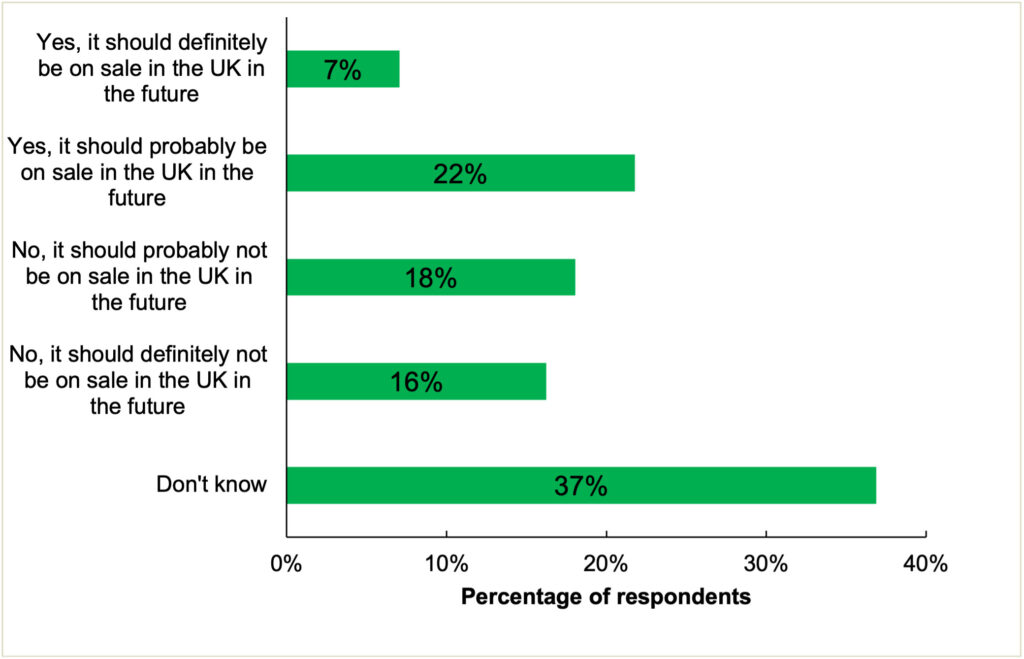
While up to two-thirds of UK consumers are willing to try precision-fermented products, fewer would consume them regularly, exhibiting the need to build familiarity and trust.
Between 52% and 68% of Brits are open to trying foods made from precision fermentation, though only three in 10 believe they should be made available for sale in the UK, citing concerns about food safety and affordability.
It’s why only 17-35% say they’re open to regularly eating precision-fermented dairy or eggs, according to research by the UK’s Food Standards Agency, which reviewed 19 studies and analysed data from its own survey of over 2,000 respondents.
Precision fermentation combines traditional fermentation processes with the latest biotechnology advances to efficiently produce a compound of interest, like a protein, flavour molecule, vitamin, pigment, or fat. It has been in use globally for over 30 years to make medicines like insulin and common food ingredients such as rennet.
Brits’ interest in the technology’s use for novel food is tied to its benefits for animal welfare (cited by 43%) and human health (41%). Further, they’re curious about the novelty, and some are driven by a belief that they’re similar in taste and texture to conventional animal proteins, and the fact that they’re better for the environment.
However, concerns about chemicals, ingredients and long-term side effects, a perceived unnaturalness, and their high price are the main demotivators when it comes to these foods. In addition, people are unsure about how to categorise precision-fermented foods, and may be confused about whether these products are vegan or vegetarian.
Who is the precision fermentation consumer?

The FSA review found that people in the UK are more likely to incorporate these animal-free foods in their shopping baskets and diets if they are male, young, university-educated, and politically liberal, have a higher income, and are from an ethnic minority.
These products also appeal more to people who have already heard of precision fermentation, have high levels of conventional dairy consumption, and perceive animal-free products to be tasty, ethical, natural, and climate-friendly.
In the UK, flexitarians tend to be the most likely to consume these future foods, while vegetarians and pescatarians show greater potential than both omnivores and vegans.
The benefits and concerns related to precision fermentation are more important for some demographics than others. For example, women are more likely to be worried about chemicals and ingredients, and tend to be more motivated by the fact that it eschews animal farming.
For men and youngsters, on the other hand, price is a bigger draw, with these groups more likely to be motivated to buy a precision-fermented product if it’s cheaper than its conventional counterparts.
And farmers are more likely to be convinced of the risks of precision-fermented dairy and less likely to believe in its benefits than people in other professions.
How do Brits view the labelling and regulation of precision fermentation?

The review highlighted the need for consumer education around precision-fermented foods, given that only 5-10% of Brits correctly understood that these innovations come neither from plants nor animals.
To counter that issue, some companies have decided to use vegan certification labels, though experts argue this creates more confusion, as vegan products are perceived as safe for people with dairy allergies. Precision-fermented dairy innovations contain proteins that are molecularly identical to cow’s milk, so they aren’t suitable for these consumers. It’s why Swiss organisation V-Label has launched a dedicated certification for fermentation-derived products.
The FSA cited research by the Good Food Institute suggesting that 62-64% of Brits prefer the terms ‘animal free’ or ‘non-animal’ on these products, and these are perceived as most effective at differentiating the products from both animal proteins and plant-based foods.
There is a caveat, however. Without prior knowledge of this technology, these two terms are more likely to be linked to plant-based products compared to other phrases. It’s also unclear whether ‘animal-free’ or ‘non-animal’ sufficiently conveys allergen information to consumers.
Interestingly, the terms ‘animal-free’ and ‘made from fermentation’ are perceived most positively by consumers who have no prior knowledge of precision-fermented dairy or eggs. Similarly, the former is most appealing to those who know about the technology.
The research reveals that one of the most important predictors of purchase intentions of animal-free dairy in the UK is having a positive perception of the product. Moreover, studies show that more people are willing to buy such foods when their descriptions emphasise their benefits (such as a lower carbon footprint and no antibiotics).

That said, Brits remain uncertain about the sale of precision-fermented foods. According to a survey by the FSA, only 7% think they should “definitely” be allowed to be sold, while another 22% say it should “probably” be allowed. These consumers skew male, young, and university-educated, and are more likely to be from an ethnic minority, have heard of the technology, and not be omnivores.
Over a third (34%) are against the sale of precision-fermented products, with 16% feeling strongly about it. The remaining 37% of Brits don’t know where they stand on this issue currently. “People who are already open to trying novel foods generally trust in the regulation of precision-fermented dairy,” the FSA said, outlining the importance of building trust and familiarity in this technology.
The post Most Brits Are Open to Precision-Fermented Foods, But Safety & Price Concerns Persist appeared first on Green Queen.
This post was originally published on Green Queen.